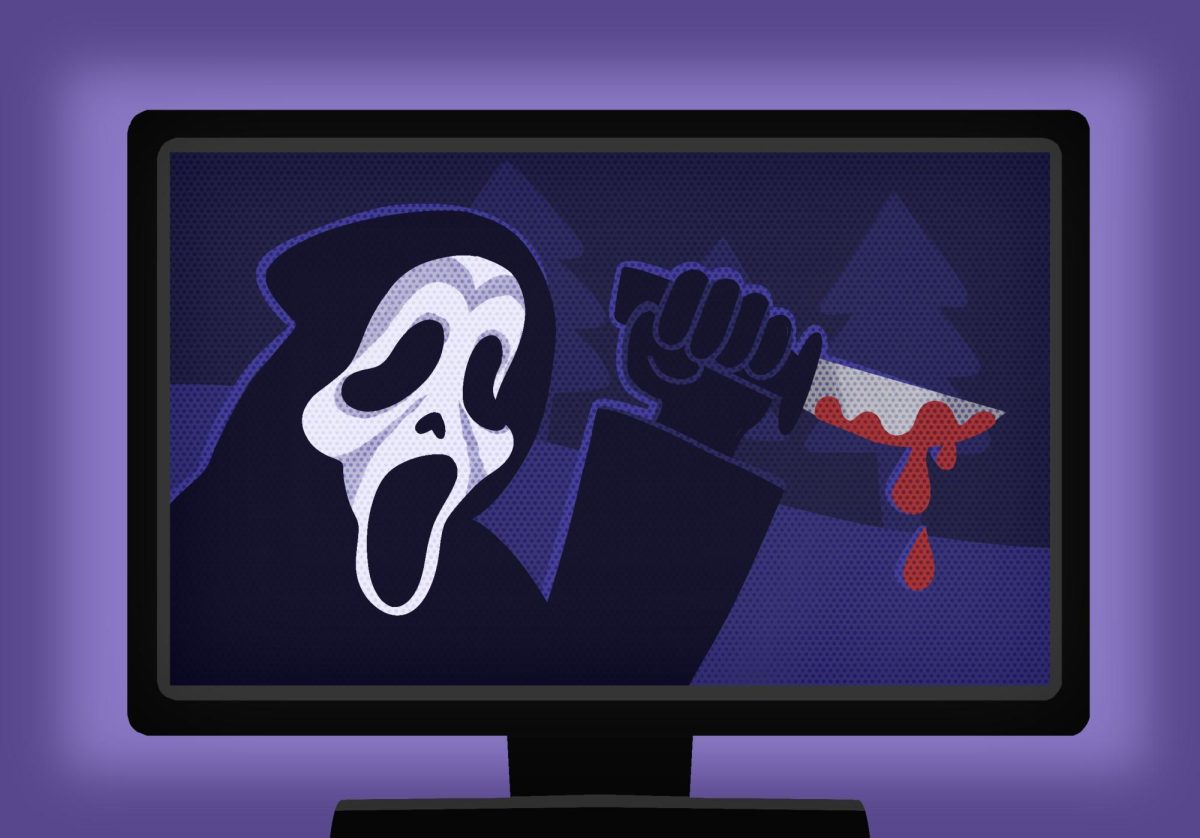For the past few weeks the great subterranean halls of nerdom have echoed with the fell clash of steel on steel. Wait, did I say âÄúgreat subterranean hallsâÄù? Sorry, I meant Middlebrook Hall. And you should probably replace âÄúclash of steel on steelâÄù with âÄúsmooshing of skin on plastic,âÄù too.
The nearly tandem release of two obscenely anticipated new games has turned dorm rooms into dungeons and made bearded monsters of what were once upstanding freshman citizens. These denizens cannot be blamed for their retreat from the real world, however, because âÄúSkyrimâÄù and âÄúSkyward SwordâÄù are both unbelievably engaging. Each game transcends previous limits of the fantasy adventure genre, and each does so in an entirely unique fashion. The titles may be similar, and steel may shape their core but in the end, âÄúSkyrimâÄù and âÄúSkyward SwordâÄù soar for very different reasons.
Game: âÄúElder Scrolls V: SkyrimâÄù
Maker: Bethesda Softworks
Platform console: Xbox 360, PC
âÄúElder Scrolls V: SkyrimâÄù was released nearly two years after its predecessor, the genre-defining âÄúElder Scrolls IV: Oblivion.âÄù Expectations were enormous after the success of the franchiseâÄôs fourth installment, but the fifth has blown away any frustration over the long delay.
Set in the Nordic northern realms of Tamriel, the landscape of âÄúSkyrimâÄù is cold and rugged. The beautifully realized wilderness is slathered in towns, dungeons and intrigue; the designers claim that a perfect play-through, completing every quest with no deaths, would take at minimum 500 hours. ThatâÄôs nearly a month of 24-hour-a-day gaming, with no mistakes made. And believe me, itâÄôs hard not to make mistakes when you havenâÄôt slept in 14 days. While it is technically possible to finish the game in those 500 hours, most aficionados predict that the fastest time to fully complete âÄúSkyrimâÄù will be around 700 hours.
Every minute of those 700 hours is a joy, a beautifully crafted moment lived through another body thatâÄôs way cooler and more talented than your own. Besides the seven major quests in the game (which will be familiar in spirit to âÄúOblivionâÄù players), there are a host of independent dungeons and item-hunts, each of which is entirely unique.
But seriously, every single dungeon in this month-long game is completely different from any other âÄî artistically, texturally and monsterally. Even the wilderness between dungeons is beautiful and ever-changing, filled with terrifying creatures and acquirable items.
The world itself would be enough to suck anyone in, but itâÄôs aided here by an equally intense character-building system. Rather than choosing your skills and abilities as you level up, the game increases skills as you use them (much like the non-digital world, where you have level 43 thumb dexterity from all those reps).
This system means that you are not as defined by one time level-up choices but rather by the choices you are constantly making in the game world. At the same time, each level you gain in a skill makes the next harder to achieve, which prevents an overpowering character and promotes diversification. The range of skills, perks and abilities available is as overwhelming as the range of dungeons and guarantees that your character is as finely nuanced as a vintage Bordeaux. Or something like that.
Four stars out of four stars
Game: âÄúThe Legend of Zelda: Skyward SwordâÄù
Maker: Nintendo
Platform console: Wii
The latest installment of the hallowed âÄúLegend of ZeldaâÄù series keeps the same basic premise as every other Zelda game ever made: muscle the princess away from unstoppable evil.
Like the best âÄúLegend of ZeldaâÄù installments, however, âÄúSkyward SwordâÄù transcends this simple plot through stellar gameplay and an eternally fun universe.
The big innovation in âÄúSkyward SwordâÄù is the battle system, which uses the Wii Motion Plus peripheral to mirror your movements one-to-one. For the uninitiated among you, this means that when you swing your Wii-mote, Link swings his sword âÄî and not in some choppy, underdeveloped manner. LinkâÄôs sword follows your hand flawlessly âÄî becomes your sword. Suddenly defeating enemies isnâÄôt simply a matter of timing, itâÄôs a spatial puzzle. If the nasty pig-lookinâÄô thing keeps his shield low youâÄôll want to slash down from above; if thereâÄôs an exposed arm then a side slash might be the ticket.
Fighting becomes difficult, a task in and of itself, and each battle is now unique. You might find yourself frustrated at points, especially if youâÄôre a fan of the older games (we all played âÄúOcarinaâÄù when we were kids, be honest), because skirmishes seriously slow down the action in their depth.
DonâÄôt worry though, Link hasnâÄôt become a blood-hungry mercenary just because his sword is more agile than ever before. The classic âÄúZeldaâÄù puzzles are beautifully realized in a stylistic world that merges cartoonish âÄúWind WakerâÄù artwork with âÄúTwilight PrincessâÄùattempts at realism. Link flies between a cloud-borne fortress and various earth landscapes on his pet eagle (?!?!?)fighting demons and making the land safe for his pale fairy people.
The developers strove to merge the over world (travel landscape) and dungeons (dungeons) more seamlessly and as such, there is more to explore as you move from place to place. This simple shift gives the world a heightened intensity and makes it feel fuller. The dungeons themselves are intricate and dense, forcing you to explore your entire skill set at different times.
Heck, even the story is better here than ever before, giving due time to the relationship between Link, Zelda and the deities they strive for. After playing for just a couple of hours it becomes increasingly difficult to remember that a world exists outside of LinkâÄôs âÄî be careful lest you lose yourself in the heroâÄôs life.
Four stars out of four stars
A Tough Decision
In the end, most of us donâÄôt have enough cash to treat ourselves to two personal Christmas gifts and thus a choice rears its ugly head. ItâÄôs OK, thereâÄôs an easy answer here, framed by an equally simple question:
Are you a control freak or an escapist?
The crux of difference between these ostensibly similar games is the desire to create your experience. âÄúSkyrimâÄù is the perfect platform for a control-oriented individual, the gamer that wants to manage the barest minutiae of his time in-game. The world is yours to shape, from your appearances and armor to the guilds you join to the people you choose to help. Just as in the non-digital realms, every decision in âÄúSkyrimâÄù has a consequence that will determine how your world looks and how it eventually functions.
On the other hand, âÄúSkyward SwordâÄù gives you no options, no choices. The fate of the world hangs in the balance, and something inside of us as human beings forces us to take up arms against evil. You do not create Link; you become Link. You are LinkâÄôs hands and eyes and feet âÄî the power that moves our green-clad savior. Link and his world are already so intricately rendered that it is more than difficult enough to simply decipher them.
Video games and the real world are not so different: They both ask you to solve problems that seem huge and insurmountable to a tiny human. The difference is that video games give you the means to solve those problems. It might be wishful thinking, but the best video games make it feel as though you could do the very same in reality. âÄúSkyward SwordâÄù and âÄúSkyrimâÄù are beautiful and deep, adventures that let your inner hero shine even in the heavy darkness of your dorm room.













